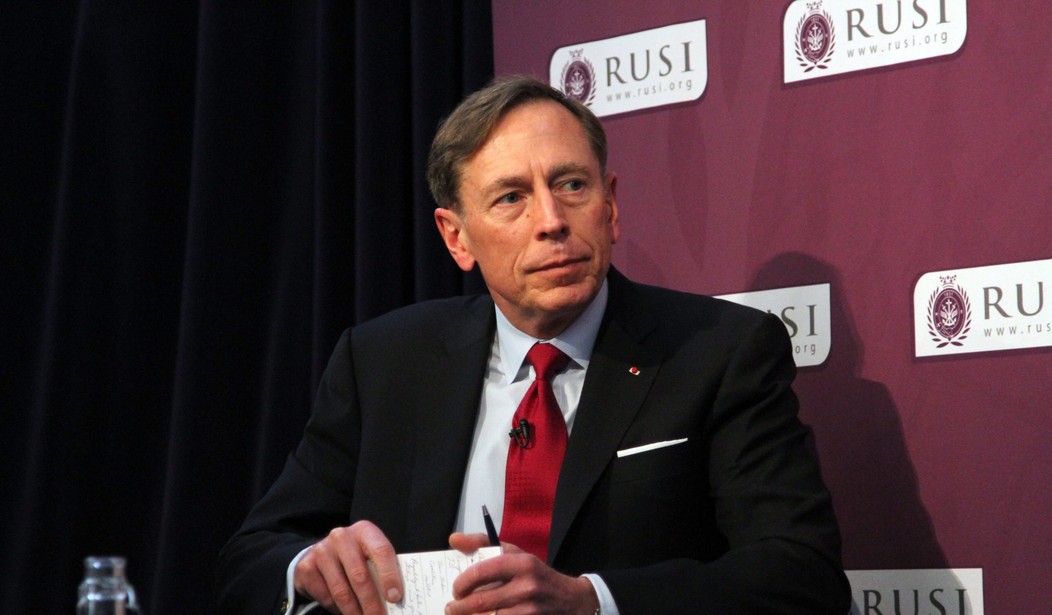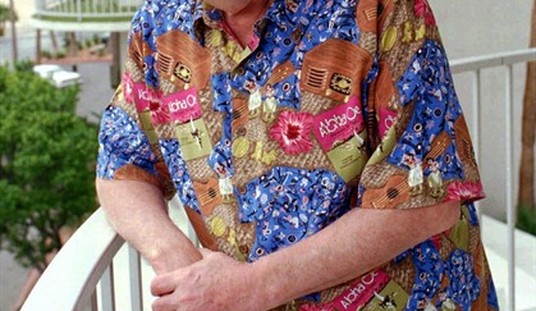WASHINGTON – Retired Gen. David Petraeus, who was under consideration as President Trump’s secretary of State after the 2016 election, applauded Trump’s trade actions toward China as “long overdue” as well as his choice of CIA Director Mike Pompeo to lead the State Department.
“He’s a very bright individual – No. 1 in his class at West Point – that’s a special breed of an individual, Harvard Law School, successful businessman, obviously a successful political figure and has been a strong director of the CIA,” Petraeus said during a Veterans in Global Leadership reception on Thursday evening.
“So what I would look for there, in particular, would be how quickly can they get qualified individuals nominated and confirmed, because a State Department without confirmed assistant secretaries of State is a State Department that doesn’t have one of its most important elements,” he added.
Petraeus, who served CIA director under President Obama, said many people are wondering why it’s taking so long for the Senate to confirm assistant secretaries of State and why there has been “such an exodus” of senior ranking officials at the State Department.
“It’s hard to understand what is the dynamic here, what was all that about, but my hope would certainly be that Mike Pompeo, recognizing the issues that exist, will be able to work effectively with the White House and with the president, with whom he’s developed, obviously, a very strong relationship and mutual respect,” he said. “He’s a strong leader and I would hope that we would see quick results on that front, in particular.”
Petraeus was asked to weigh in on Trump’s decision to fire Rex Tillerson.
“I mean, I can’t second-guess – you are not in the inside. I don’t know what the dynamics were. Obviously, there was some friction between the secretary of State and the president. On some days, that would be putting it mildly. I thought, substantively, that he developed quite quickly and impressively,” he said.
Petraeus said that presidential campaign promises often “collide” with reality.
“If you look at this presidency, if you had to choose between continuity and change for foreign policy, you probably, believe it or not, opt for continuity,” he said. “The tweets and rhetoric and all the rest of, not notwithstanding, except for maybe three areas and trade is very much one of those, the other might be immigration, although we are still not really sure what the ultimate policy will be, and the climate.”
Petraeus said Tillerson worked on issues related to China “substantively well” and that the Trump administration’s trade actions were “probably long overdue.”
“Yes, there is pressure on China about North Korea, correctly in my view, yes there are some trade issues that are being pursued pretty aggressively; frankly, those are probably long overdue, some of those – again, you can talk about each one and the justification for it, perhaps. By and large, I think the senior diplomat has guided this along with a good team in the White House, I think, substantively well,” he said.
Petraeus was asked if he approves of Trump’s CIA director nominee Gina Haspel.
“She’s a very capable, very bright and very personably, very good leader, all kinds of superlatives there, she was the station chief in an undisclosed location when I was the director – privileged to be at the agency – very highly regarded but, as you know, she’s obviously associated with some activities that now, to put a point of it, are illegal thanks to the Army Field Manual,” he said.
Petraeus provided a “sense” of where he thinks Haspel’s confirmation hearing testimony would go.
“I have a lot of respect for her. My sense is and understanding is that she is going to explain in her opening statement she gets it, that this is now illegal and therefore never accommodates it and explains perhaps the context at the time. It is very important to recall that context,” he said. “Again, I have stood against enhanced interrogation tactics well before they were illegal, in part based on experiences in Iraq and Afghanistan.”
Petraeus predicted that Haspel would successfully explain her past with regard to the enhanced interrogation techniques used on suspected terrorists in the past.
“I’m sure she will seek to explain that in her opening statement and I would suspect again, knowing her, that she will be effective in doing that and will reassure the members of the committee that follow up on that,” he said.
Petraeus said the success of her testimony depends on her explanation of issues such as the tapes that were destroyed from the waterboarding of Abu Zubaydah.
“It will depend on the effectiveness of that explanation as to whether it’s, relatively speaking, an easy path to confirmation,” he said.
Petraeus provided his reaction to Lt. Gen. H.R. McMaster resigning as national security advisor but declined to comment on his replacement, former UN Ambassador John Bolton.
“I think very, very highly of him. He is someone who is not one to leave something left unsaid, as they say. I welcome that. I want people to be willing to cross swords,” Petraeus said of McMaster. “I think he served the country very, very well in a very challenging and difficult job at the best of times and, arguably, particularly challenging over the course of the last year or so.”
Citing China as one of the greatest geopolitical challenges facing the U.S. government, Petraeus said many Americans are “concerned about certain features” of its economic and political systems.
“Other would-be authoritarians around the world are going to start looking to that system for inspiration, perhaps, instead of to the shining city on a hill, as Reagan termed our great country, and so I think that’s how I would characterize the big challenge right now,” he said.









Join the conversation as a VIP Member